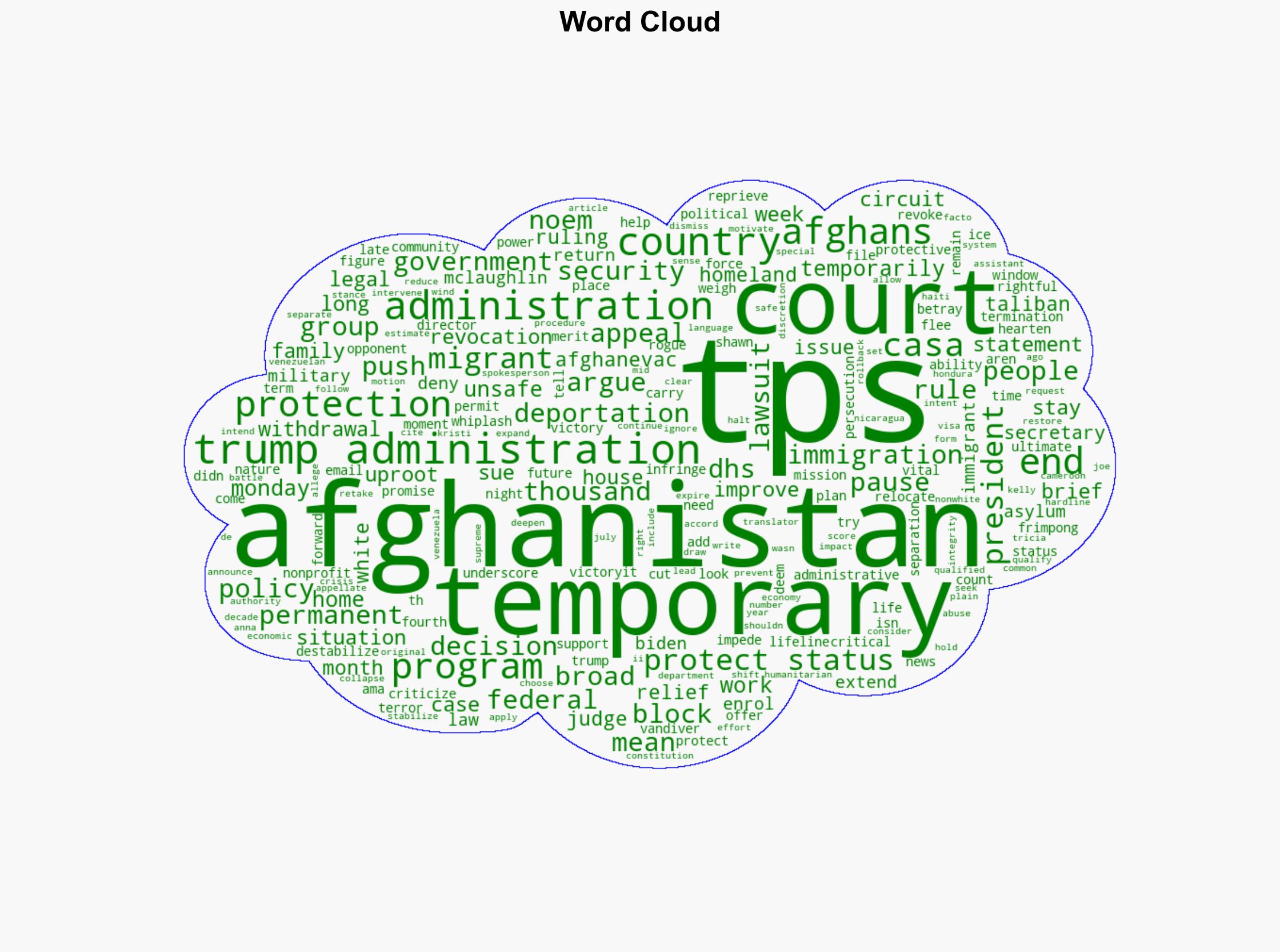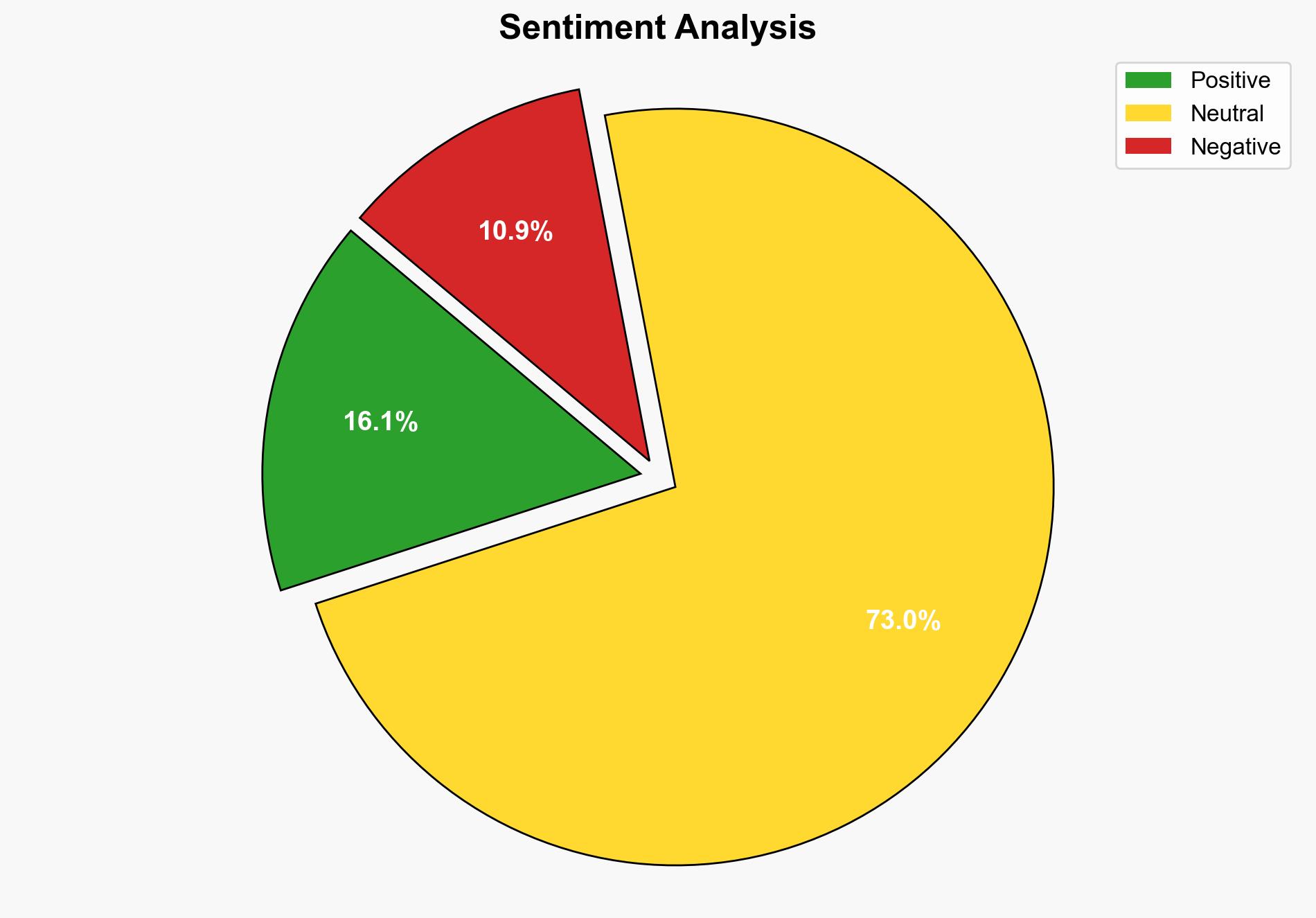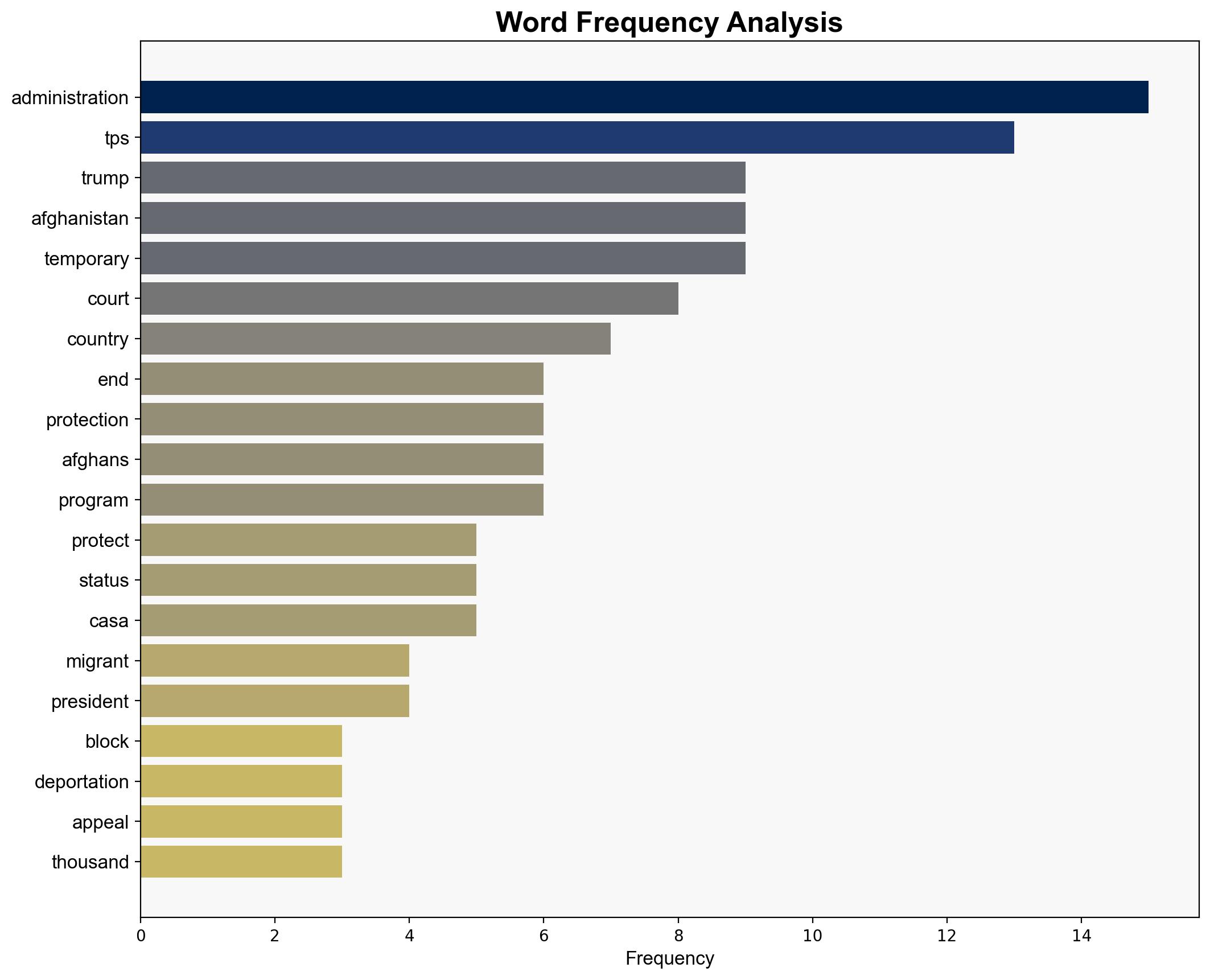Trump admin blocked from ending deportation protections for Afghans for now – CBS News
Published on: 2025-07-15
Intelligence Report: Trump admin blocked from ending deportation protections for Afghans for now – CBS News
1. BLUF (Bottom Line Up Front)
The U.S. Court of Appeals has temporarily blocked the Trump administration’s attempt to end deportation protections for Afghans under the Temporary Protected Status (TPS) program. This decision provides a critical reprieve for thousands of Afghans at risk of deportation, amidst ongoing debates about the safety and stability of Afghanistan. The ruling highlights the tension between executive immigration policies and judicial oversight. It is recommended that stakeholders closely monitor legal proceedings and prepare for potential policy shifts.
2. Detailed Analysis
The following structured analytic techniques have been applied to ensure methodological consistency:
Causal Layered Analysis (CLA)
– **Surface Events**: The court’s decision to block the termination of TPS for Afghans.
– **Systemic Structures**: U.S. immigration policy frameworks and judicial checks on executive actions.
– **Worldviews**: Divergent perspectives on immigration policy, national security, and humanitarian obligations.
– **Myths**: The belief in TPS as a temporary measure versus its perceived role as a de facto asylum mechanism.
Cross-Impact Simulation
The decision may influence U.S. relations with Afghanistan and neighboring countries, impacting regional stability and migration patterns. It could also affect domestic political dynamics and immigration policy debates.
Scenario Generation
– **Best Case**: Legal resolution leads to a stable, long-term policy for Afghans, balancing security and humanitarian concerns.
– **Worst Case**: Continued legal battles create uncertainty, affecting Afghan communities and U.S. foreign relations.
– **Most Likely**: Temporary reprieves continue, with incremental policy adjustments based on evolving legal and political landscapes.
3. Implications and Strategic Risks
The ruling underscores vulnerabilities in the U.S. immigration system, potentially affecting national security and humanitarian commitments. It may lead to increased scrutiny of executive actions and influence future policy decisions. The situation poses risks of destabilizing Afghan communities in the U.S. and complicating international relations.
4. Recommendations and Outlook
- Monitor legal proceedings and prepare contingency plans for various outcomes.
- Engage with stakeholders to develop a comprehensive strategy addressing both security and humanitarian needs.
- Consider scenario-based planning to anticipate and mitigate potential disruptions.
5. Key Individuals and Entities
– Ama Frimpong
– Shawn Vandiver
– Anna Kelly
– Tricia McLaughlin
– Kristi Noem
6. Thematic Tags
national security threats, immigration policy, judicial oversight, humanitarian protection, U.S.-Afghanistan relations




